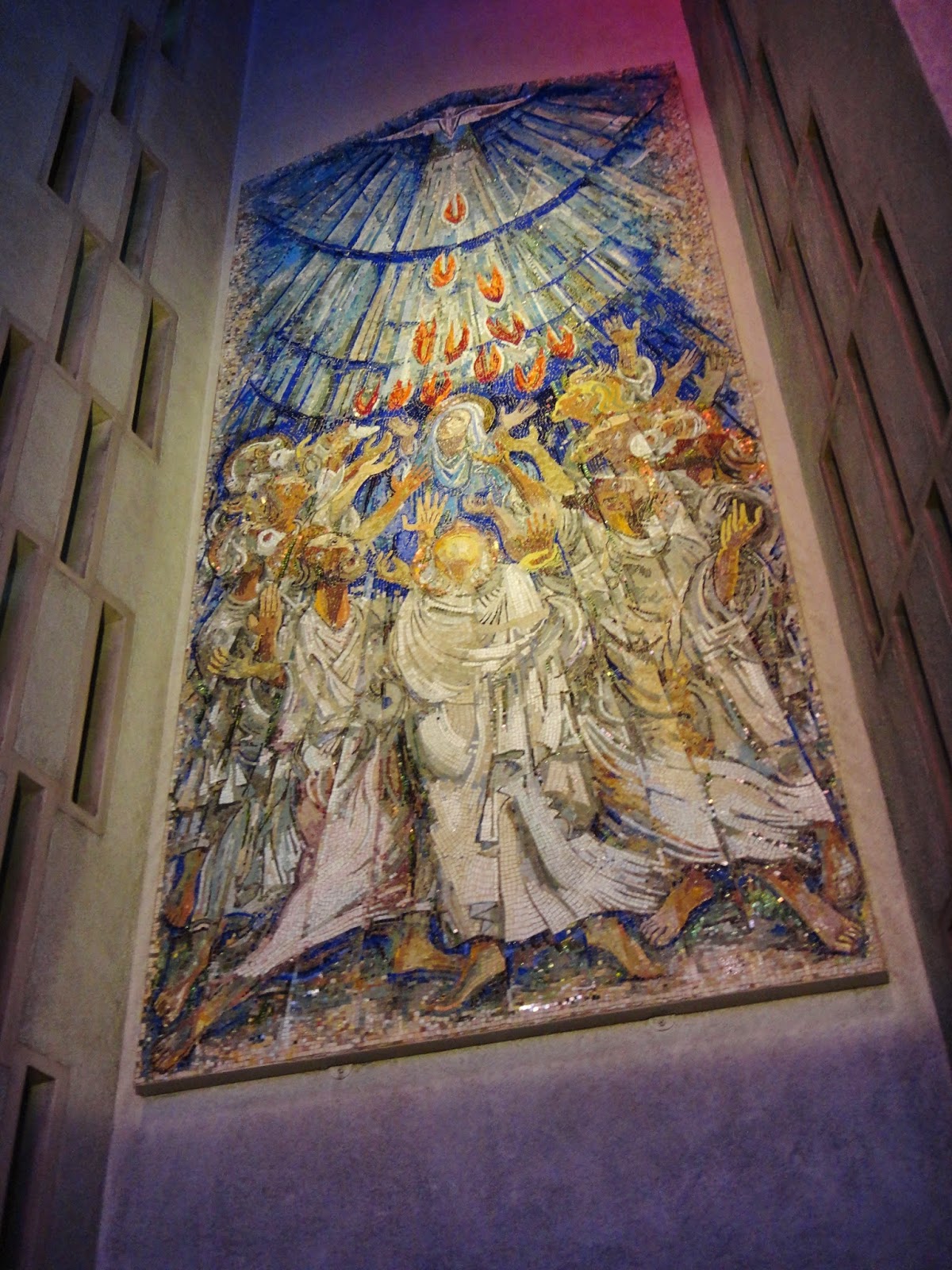My 'first' homily in the community in London. To remind myself of the things I reflected, I would like to share this humble homily in my blog...
“Look at the fig tree and all the trees” Our Lord says.
When I hear these
words, I think of the cherry trees in our back garden. Last April, I saw
dashing white cherry blossoms on the trees. And soon afterwards in summer, I
saw fresh green leaves on them. And soon afterwards now in autumn, I see red
and yellow leaves and the trees are shedding their leaves one by one. Sooner or
later, we will see barren branches like the end of the world.
This week is the last
week of the year according to the Church calendar. We have been reading the
passages from Apocalypse as our first reading these days. And the Gospel also
bears this atmosphere of immediacy and urgency before the end of the times. In
fact, today’s passage is a part of what the biblical scholars call ‘eschatological
discourse’ of Jesus during his Jerusalem ministry before the Passion.
This passage is
located between the two passages. One that is before today’s passage is about
the signs of the times. It says ‘There will be signs in the sun, the moon, and
the stars, and on the earth distress among nations confused by the roaring of
the sea and the waves’.
Another one that comes
next to today’s passage is about being awake. It says ‘Be on guard so that your
hearts are not weighed down with dissipation and drunkenness and the worries of
this life, and that day catch you unexpectedly, like a trap’. I think today’s
passage is closely connected to these two themes.
Let me talk about the
first one, about ‘reading the signs of the times’ or we can also put it as ‘discernment’.
It reminds me of the contemplation of the Holy Trinity in the Second week of
the Spiritual Exercises. The Three Persons look at the world: people from
different parts of the world, different backgrounds, and different situations…
And after looking at them, the Son decides to come down to us in person, the
Incarnation! The Holy Trinity’s contemplation bears fruit as a divine action of
being incarnate on earth.
Now, I would like to
mention my second point, about ‘being awake’. I think being awake can mean to
be constantly conscious of standing in front of God. In other words, it can
mean that we do not forget God is watching over us. For some, it may sound as
if God plays a policeman controlling and judging every single act of our life.
But more proper analogy, I believe, would be God like a mother always being
alert of her baby and watching over the baby to give protection from any harm.
About this image of
standing in front of God, I also would like to share with you a very powerful
image from a Danish philosopher, Søren Kierkegaard,
from his book ‘The Sickness
unto Death’. Let me quote from the book.
“A
herdsman who (if this were possible) is a self only in the sight of cows is a
very-low self, and so also is a ruler who is a self in the sight of slaves --
for in both cases the scale or measure is lacking. The child who hitherto has
had only the parents to measure himself by, becomes a self when he is a man by getting
the state as a measure. But what an infinite accent falls upon the self by
getting God as a measure!”
Yes, we are what we
allow ourselves to be. If we do certain things just because we are told to do
so, once the things are done, they cannot change us anymore. But, if we do
something, thinking that we are doing this because we love God, because we know
God is looking at us with his love and mercy, then I believe what we do can
transform us, and we become who and what God wants us to be beyond our wildest
imagination.
So, first, reading the
signs of the times or discernment… and second, being awake or remembering
standing in front of God… These two things are what I think Jesus’ message for
us today. And what is significant for me is that in both themes, we can see
that the contemplation leads to action. Therefore, the messages of Apocalypse
in our Christian belief should not be despair and passive resignation but
rather should be actions based on contemplation and discernment.
Finally, “Heaven and earth will pass away, but my
words will not pass away” says Our Lord. White cherry blossoms,
then green leaves, and then red and yellow leaves, and now fallen leaves… They
never fail to change, but that passing itself seems to reflect the
never-changing truth of God. The lonely and dark winter is only waiting for the
life-giving moment of the spring. The words of our Lord, stronger and more
stable even than heaven and earth… I think nothing can be more assuring than
this in this day and age of uncertainty…










